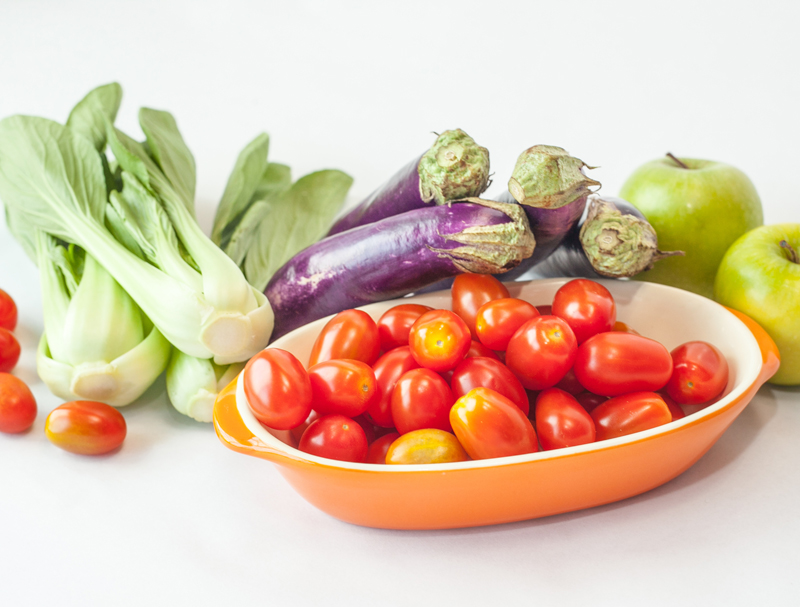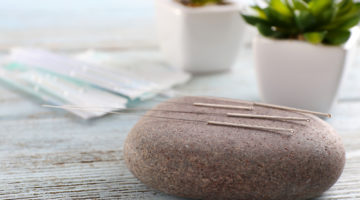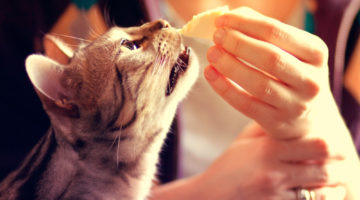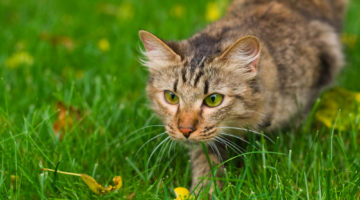Fruits and vegetables are good for cats too! Find out which ones are healthiest and how to feed them to your feline friend.
Tyrone had his own fresh sushi bar. Actually, it was our indoor pond, but our tabby/Persian mix didn’t seem to know the difference at times. And sushi wasn’t the only thing on his mind when it came to his diet. He had very clear ideas of his own, and given the choice between tasty morsels of fresh cooked fish or hand cut French fried potatoes, the hearty vegetables won out every time.
It boggled my mind, but perhaps it shouldn’t have. Potatoes have a lot to offer. They are a good source of vitamin C and dietary fiber. They also contain a variety of phytonutrients with antioxidant properties, including carotenoids and flavonoids. In fact, the phytochemicals in potatoes rival those found in broccoli!
Potatoes aren’t the only vegetables (or fruit!) that you can feed to your cat. Before you start, though, keep in mind that cats must have meat in order to survive. As an obligate carnivore, your cat cannot become a vegetarian, so quality foods made with fresh, whole meats must make up the bulk of his diet. But there’s no reason why you can’t supplement that diet with a few nutritious fruits and veggies for extra variety and nutrition. They can help your cat live a longer, healthier life, and may even reduce the risk of certain diseases, including cancer.
Choose organic fruits and vegetables whenever possible. This is particularly important because the skins on these foods are usually the most concentrated source of nutrients, yet they’re where pesticide residues are most likely to be found.
Since cats do not have the necessary enzymes to break down cellulose walls, the indigestible carbohydrates found in the outer layers of fruits and vegetables, we have to break down the walls for them so these power packed foods can be made as bio-available as possible. This can be accomplished in a variety of ways:
- A food processor, juicer, blender, or grinder can quickly create a wonderful purée. Juicing produces lots of fantastic pulp.
- Cooking and steaming vegetables will also break down cellulose walls.
- Most fruits just need a fast spin in a processor.
- Visit your local organic juice bar or health food store and ask if you can have some of their extra pulp. It freezes beautifully, so you always have some on hand when you can’t do the work yourself, and you can use it as a base for wonderful frozen treats and biscuits.
Keep in mind that if your cat has never eaten fruits and vegetables before, you’ll need to start slowly with small amounts to avoid digestive upset. If you have a finicky feline, you may find he’ll reject some and enjoy others. Be patient, try the recipes in this article, and experiment until you find something he likes!
Bison cranberry crunch
Ingredients
- 1 pound grass fed bison liver
- 1/2 cup finely minced fresh cranberries
- 1 clove finely minced garlic
- 1 teaspoon Acadian sea kelp
Bison and sweet potato crunch
Ingredients
- 1 pound grass fed bison liver
- 1/2 cup grated sweet potato or yam
- 1 teaspoon carob powder
- 1 teaspoon Saigon cinnamon
- 1/2 cup stone ground whole brown rice flour
Instructions [for both recipes]
Use organic ingredients wherever possible. Preheat oven to 200ºF. Combine all ingredients in a food processor or blender until smooth. Line a cookie sheet with parchment paper. Pour cranberry or sweet potato liver paste onto parchment paper and spread with a spatula. Place cookie sheet on middle rack of oven. Bake for three hours.
Take a sample and break it – you should hear a great “snap”. Cool completely before storage – this step is essential! Break into kitty-sized pieces and keep in an airtight container or Ziploc bags. If desired, garnish sweet potato crunches with catnip and/or marjoram. Cranberry crunches can be garnished with very finely minced dried unsulphered cranberries or an extra dash of Acadian sea kelp.








No Comment